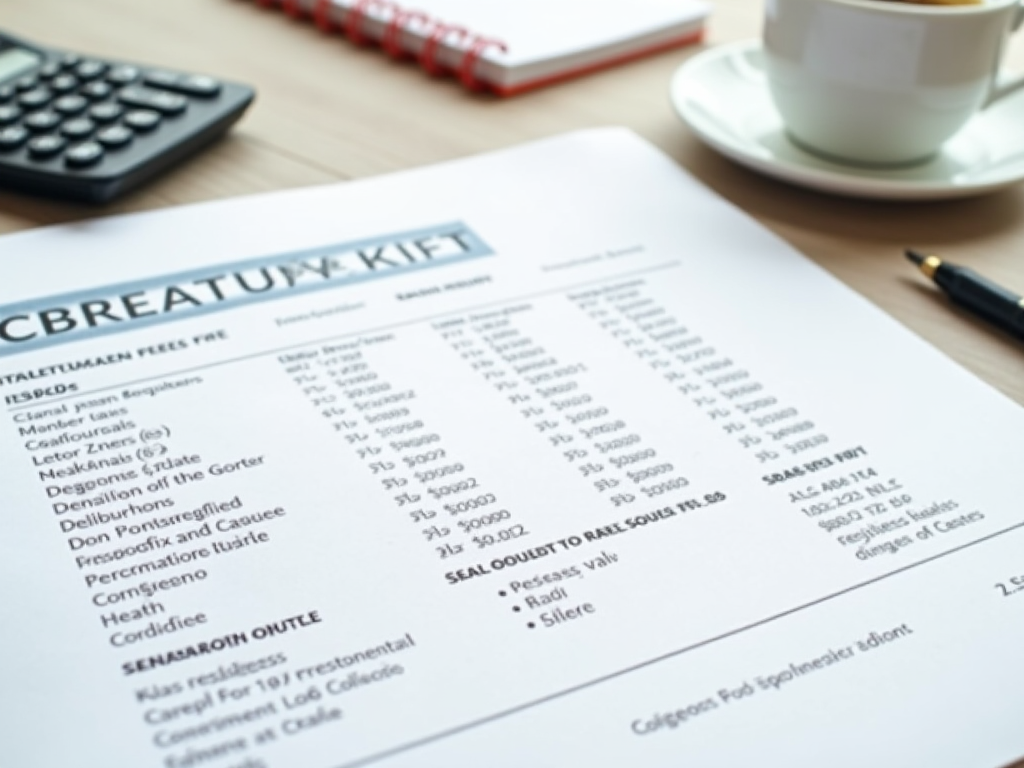When considering a business setup in the RAK Free Zone, entrepreneurs must be proactive about understanding the financial obligations involved. While the initial costs of obtaining a RAK Free Zone license may seem straightforward, hidden fees can quickly accumulate and catch applicants by surprise. This article will unveil these potential hidden fees to ensure you are fully prepared for your application process.
1. Initial Application Fees

Upon submitting your application for a RAK Free Zone license, an upfront fee is typically required. However, this amount often does not reflect the total cost you might incur. It’s crucial to account for additional initial application fees and associated costs. These can include:
- Administrative fees
- Documentation processing charges
- Initial capital deposit requirements
Each of these can escalate your initial investment well beyond what you may expect. Engaging with a consultant familiar with the free zone can provide clarity on these fees. As a result, always verify what the initial application fees cover to avoid unexpected financial burdens.
2. Licensing Renewal Fees

One of the key considerations an entrepreneur needs to keep in mind is the cost associated with renewing the RAK Free Zone license annually. As you prepare for your first operational year, it’s vital to understand that licensing is not a one-time fee, and associated renewal fees can be a hidden cost that sneaks up on many businesses. Additionally, these renewal charges can include costs such as:
- License renewal application fee
- Fines for late renewals
- Changes in fee structures based on business modifications
Understanding the timelines and requirements for renewal will help you budget effectively in the long term. Setting reminders and keeping accurate records can mitigate the worry regarding missed renewals and associated penalties.
3. Additional Service Fees
As part of setting up a business in the RAK Free Zone, you may require various supplementary services from local authorities or third-party service providers. These can add to your total costs significantly. Typical additional services that come with their own fees include:
- Office registration and lease agreements
- Utility connection fees
- Local sponsorship or agent fees
- Business consultancy services for document preparation
It’s imperative to conduct an audit of potential service providers and to get quotes upfront. This preparation can play a vital role in budgeting for these extras that are essential yet often overlooked.
Due to regulations regarding employment in the UAE, securing the necessary visas for employees and owners is critical and often carries various costs. While some documents may seem reasonably priced at first glance, fees can stack up when you consider visa processing, health insurance, and medical checks. Consider these potential costs:
- Investor or business owner visa
- Employee work visas
- Visa extension fees for renewals
- Medical examinations and health insurance
These requirements can fluctuate based on government mandates, so staying informed and adjusting your budget as necessary is prudent. Engaging a local agent well-versed in RAK Free Zone regulations can also prove advantageous in navigating these costs.
5. Trade and Municipal Fees
Lastly, businesses in the RAK Free Zone may encounter various trade and municipality fees throughout the operational phase of their establishment. Understanding these costs is paramount to maintain financial health. Common fees include:
- Trade license fees for specific business activities
- Municipality charges for business compliance inspections
- Advertising and signage fees for local guidelines
These fees may vary significantly depending on the type of business you operate. Investing time in research before launching your enterprise will ensure these fees don’t compromise your profit margins post-launch.
Conclusion
By unraveling the hidden fees associated with the RAK Free Zone license application, potential entrepreneurs can avoid unwarranted financial strains. It’s crucial to approach the licensing process with a comprehensive understanding of all potential costs involved, from application through to operational expenses. Planning and thorough research are your best allies in ensuring that your business remains financially viable within the RAK Free Zone.
Frequently Asked Questions
1. What are the main hidden fees when applying for a RAK Free Zone license?
The primary hidden fees include initial application fees, renewal costs, additional service fees, visa and immigration costs, and ongoing trade or municipal fees.
2. How often do I need to renew my RAK Free Zone license?
Your RAK Free Zone license typically requires annual renewal, along with associated fees for processing and compliance requirements.
3. Can I avoid some of the hidden fees?
While most fees are mandatory, some can be mitigated through effective budgeting, planning, and using services wisely, such as reliable local agents for processing.
4. Are there any penalties for late renewal of the RAK license?
Yes, failing to renew your license on time can incur fines and even potential business operation suspension, emphasizing the importance of timely action.
5. Is it advisable to hire a consultant for the application process?
Yes, hiring a consultant can provide clarity and assistance in navigating the application process and understanding all possible fees, making it a worthy investment.


